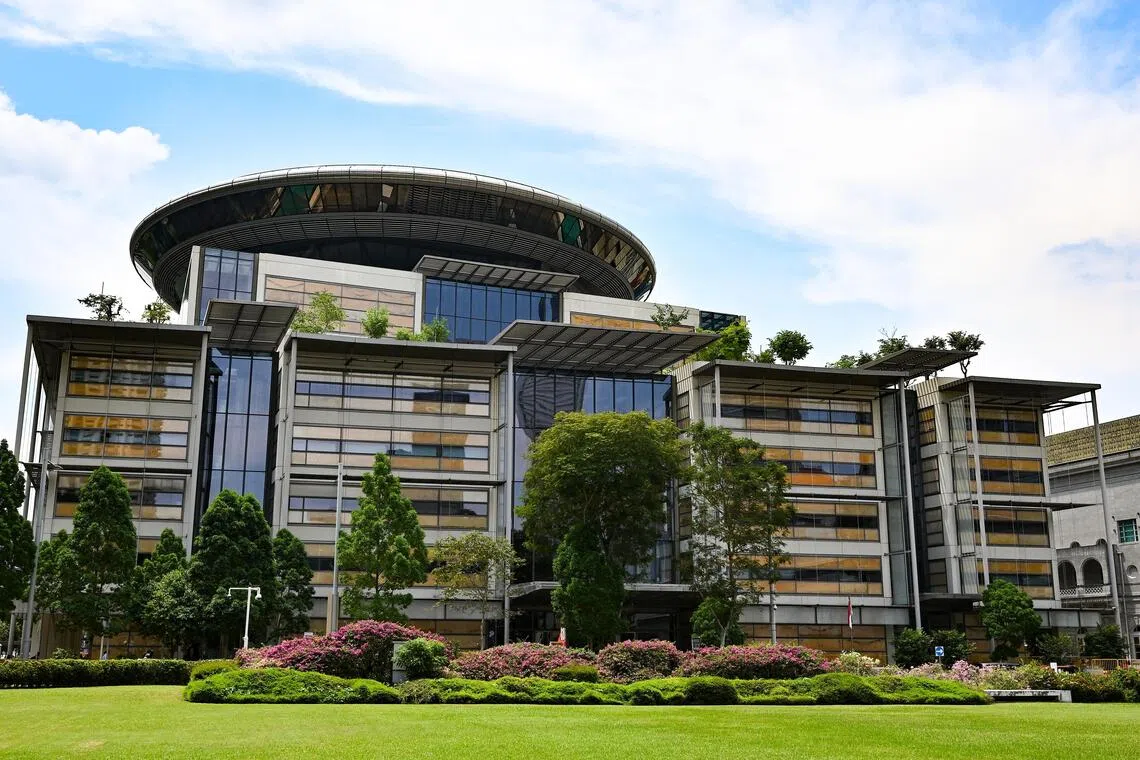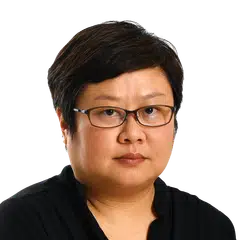Judge rejects woman’s bid to sell condo bought in trust for son, citing lack of disclosure
Sign up now: Get ST's newsletters delivered to your inbox

The woman did not disclose that she had lost a lawsuit against AIA over a $1 million life policy taken out by her husband, who had fallen to his death in Australia in 2016.
ST PHOTO: LIM YAOHUI
Follow topic:
- High Court rejected Ms Tan's attempt to sell a condo held in trust for her son, bought in 2019 for $1.8 million.
- Justice Choo cited Ms Tan's sole reason for selling was the property's increased value to $2.28 million.
- Ms Tan's failure to disclose her husband's death and lawsuits raised concerns about the trust's true purpose and potential evasion of additional buyers’ stamp duty.
AI generated
SINGAPORE – A woman’s attempt to sell a condominium unit that had been purchased in trust for her son, who was six years old at the time, has been rejected by a High Court judge, who said he was “not at all comfortable” to approve the sale.
Ms Cheryl Tan, who bought the property in 2019 for $1.8 million, applied to the court to approve its sale because a buyer was now willing to pay her $2.28 million for it.
In a judgment on Oct 31, Justice Choo Han Teck noted that Ms Tan wanted to liquidate the trust simply because the value of the property had increased.
“That being the only reason for the sale is sufficient grounds to dismiss her application. A trustee’s duty is to protect the trust assets and not deal with it, unless specifically empowered by the trust to do so, as if it were investment capital,” said the judge.
Ms Tan’s failure to disclose her husband’s 2016 death and a series of legal proceedings added to the “furtive nature” of her application, he said.
The proceedings included two lawsuits she brought against insurance companies – one of which she lost because her husband had failed to disclose that he had life policies with seven insurers totalling $6.25 million.
Justice Choo said that the court must be satisfied that the trust was not created as a means to evade the additional buyers’ stamp duty.
Ms Tan was therefore obliged to fully disclose her assets and liabilities, and, had her husband been alive, whether the trust had been created to protect their assets from their creditors.
Both Ms Tan and her late husband, who was not named in the judgment, had worked as insurance agents at AIA Singapore.
On Sept 16, 2016, she and her husband were viewing a 33rd-floor flat in Australia when he fell to his death.
In the current application, Ms Tan, who now works as a marketing manager, added her brother as a co-applicant.
Under the law, the proceeds from the sale of a trust property must be deposited in an account with at least two names.
When the case was heard before Justice Choo on Oct 21, he asked her lawyer why Ms Tan’s husband was not a co-applicant.
After checking with her client, the lawyer, Ms Renee Oei, told the judge on Oct 29 about the death of Ms Tan’s husband and that Ms Tan had changed her name by deed poll in 1996 and again in 2007.
Ms Tan changed her name to the current one for “fengshui reasons”, the court was told.
The lawyer also learnt that Ms Tan was involved in several lawsuits.
In 2021, Ms Tan lost a High Court suit against AIA for payment of $1 million under an insurance policy taken out by her husband in 2014.
She lost because AIA had repudiated the policy on the grounds that her husband did not disclose that he had applied for other life insurance policies.
It turned out that he had made seven applications with various insurance companies for a total of $6.25 million.
Apart from a 66-year term life policy with Prudential taken out in March 2014, the rest were for five-year and 10-year term insurance policies, taken out between May 2014 and July 2014.
Her subsequent appeal against the High Court decision was dismissed.
A separate lawsuit against Aviva was settled on undisclosed terms.
Ms Tan then challenged the bills from the lawyer who acted for her against the two insurance companies, claiming that he overcharged her.
In March 2022, the High Court dismissed her case, effectively compelling her to pay $595,550 in fees and disbursements to her then lawyer, Mr Tan Yew Fai.


